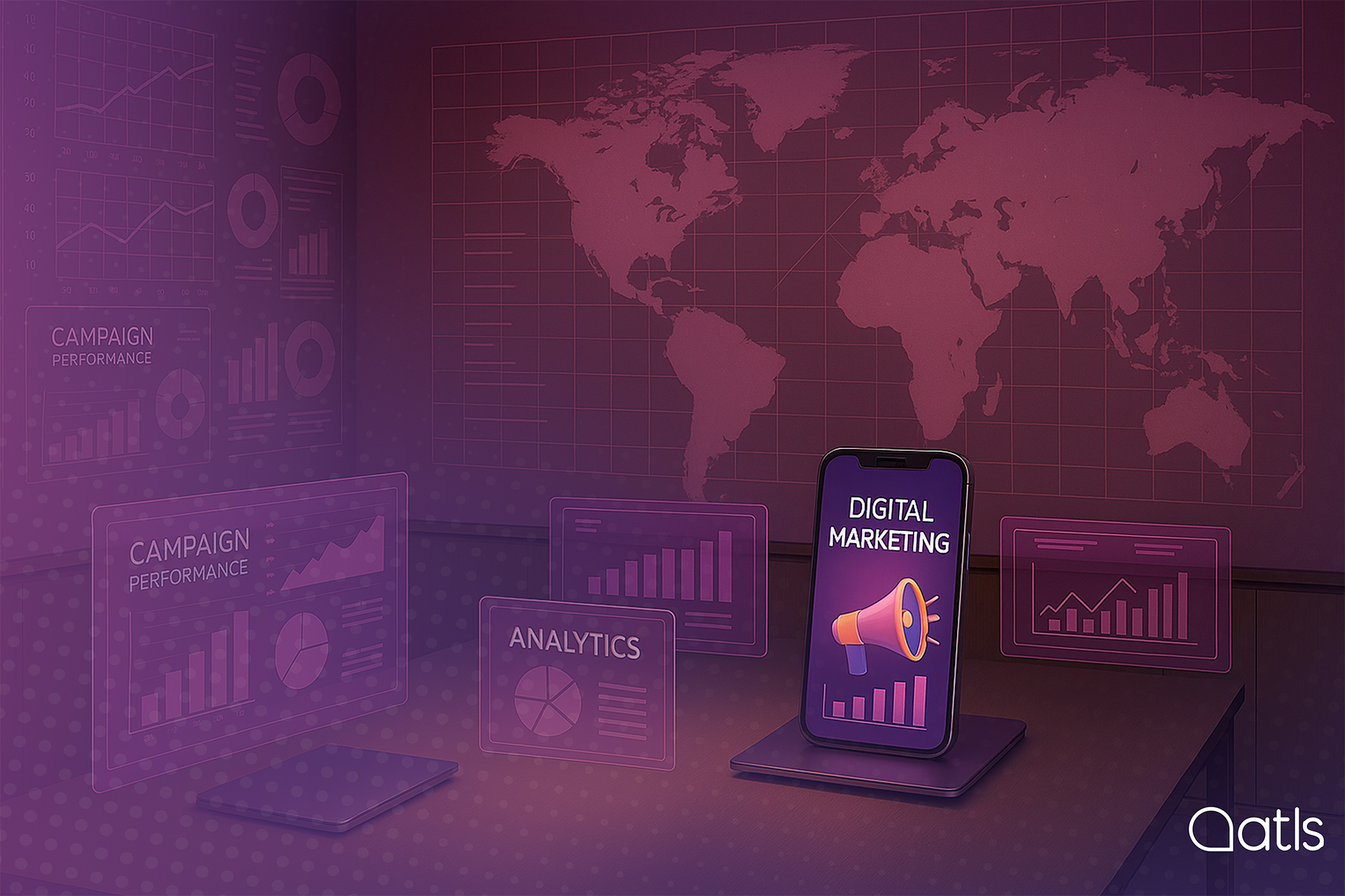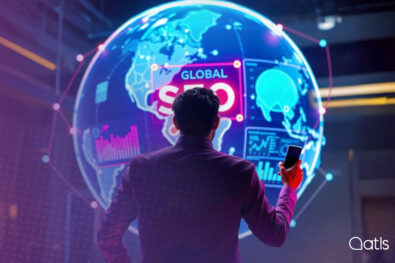We live in an unprecedented era in which technology not only supports us but also outperforms us in terms of speed, analysis and adaptability. While we sleep, algorithms do not: they learn, adjust, optimise.
While we plan our campaigns, smart systems are already anticipating what kind of content will work best, on which channel, at what time, and with what tone, for audiences as diverse as global markets themselves.
Artificial intelligence (AI) is no longer just a futuristic promise, and is now a strategic, cross-sector and powerful ally for today's digital marketing world. We no longer just talk about automating tasks, but about generating value in real time: to interpret large volumes of data, detect opportunities before they become trends and adapt messages to the cultural and linguistic subtleties of each region.
At ATLS, as a specialist professional translation and multilingual digital marketing agency, we have experienced this first-hand. We see how AI is redefining the rules of the game: how an international strategy is planned, how a brand is positioned in multiple languages, and how brands can really connect with people anywhere in the world.
Because today, more than ever, being global is not just about being present in many markets, but about having a deep understanding of them all. And AI, when well-used, has become key to achieving it.
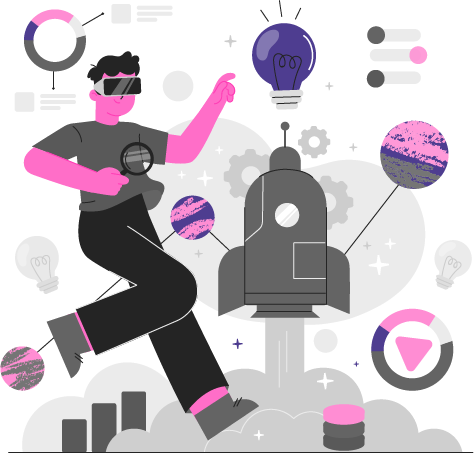
AI as a catalyst for digital marketing
Artificial intelligence has transcended the simple role of an operational tool. Today, it not only automates repetitive tasks; but completely redefines the way we understand our audiences. It gives us a level of accuracy, foresight and customisation that was unthinkable until recently. AI does not sleep, cannot be distracted and keeps learning. It observes, analyses and acts on patterns of behaviour in real time, and adjusts digital strategies with an agility that exceeds even the best human intuition.
These are some of the most significant ways that AI is revolutionising interaction between brands and users:
Advanced predictive segmentation
Leading platforms such as Google Ads and Meta Ads have integrated artificial intelligence engines that can detect microsegments that were previously lost in the mass of information. Thanks to machine learning algorithms, we can identify audience niches with common behaviours, affinities and specific needs, even if they have not yet shown an explicit purchasing intention. This enables more detailed segmentation, and more relevant and empathetic communication. Brands no longer launch generic messages in a vacuum, as they can speak directly to, and in the exact language of, their ideal customer.
Dynamic and real-time customisation

AI has removed barriers between automation and customisation. Thanks to systems that can analyse the behaviour of each user in milliseconds, from their browsing history to their location or language, it is now possible to offer content, creative skills, calls to action and even product recommendations that have been precisely adjusted to each profile and moment. This ability to adapt instantly makes campaigns much more effective and significantly improves user experience, without the need to create dozens of manual versions of the same campaign.
Sentiment analysis and active multilingual listening
AI based natural language processing tools (NLP) can analyse thousands —or millions— of comments on social networks, forums, reviews and assessments in multiple languages, in a matter of seconds. However, it is not just about counting references, but about understanding the emotion behind each word: enthusiasm, frustration, loyalty, disappointment. This deep and contextual active listening allows brands to detect reputation crises before they break out, adjust the tone of their campaigns and adapt messages with cultural and emotional sensitivity. In a global environment, where the same message can be interpreted in very different ways depending on the country or culture, this ability is more than a competitive advantage: it is a strategic requirement.
Multilingual SEO driven by AI
SEO is no longer what it was, and much less so in the context of positioning within international markets. Translating keywords from one language to another has ceased to be enough. In a digital environment where each market has its own cultural, linguistic and behavioural nuances, search engine success involves a deep understanding of the local search intent, as well as impeccable technical execution.
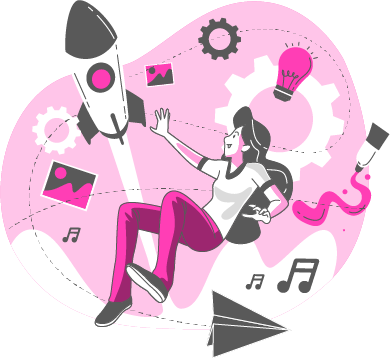
Artificial intelligence has burst into the multilingual SEO arena, and it is here to stay. Today, tools such as ChatGPT, Semrush, DeepL Write, Ahrefs and SurferSEO, which are enhanced with AI models, allow a much more accurate, strategic and scalable approach to international positioning. How do they achieve it?
Identification of local search intent: more than words, what matters is intention
The same query can mean very different things depending on the country, even if it is formulated in the same language. For example, a search like "best hair treatment" may involve cosmetic products in Spain, but hair graft clinics in Turkey. AI allows these differences to be detected by analysing search patterns, user behaviour, local SERPs and contextual synonyms.
This improves keyword selection and enables content creation that really responds to what the user is looking for in their cultural and commercial environment. At ATLS, we use this capability to build SEO strategies that are adapted to each target country.
Automation of technical and content SEO audits
AI driven crawlers, such as Semrush Site Audit and Screaming Frog with machine learning capabilities, enable deep web page reviews in multiple languages to be carried out in record time. They identify technical errors (such as redirection, loading speed, incorrectly implemented tags), duplicate content or key word cannibalisation, and also automatically suggest corrective actions.
These types of smart audits are faster and more strategic, as they prioritise errors based on their real impact on positioning and offer recommendations adapted to the international environment.
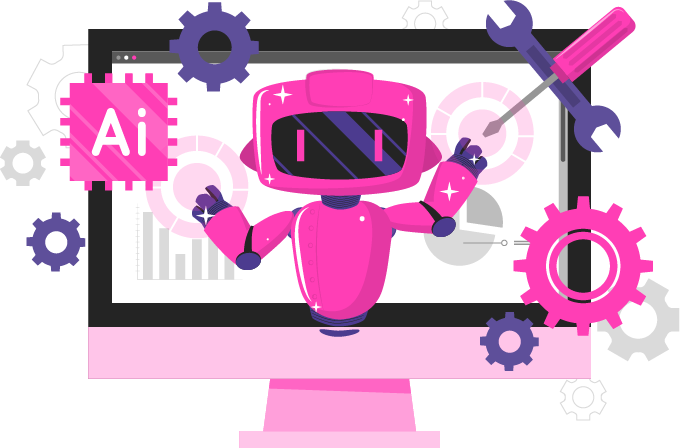
AI and creativity: allies or enemies?
For years, the dominant narrative around artificial intelligence and creativity has focused on confrontation: will AI replace human creatives? Can a machine generate ideas as original and exciting as ours? But reality —and practical experience— is showing us something very different: AI is not here to replace human creativity, but to enhance it.
Artificial intelligence is redefining creative processes. It is not replacing human inspiration, but accelerating timeframes, expanding possibilities and providing a data-based perspective to complement intuition. We are in a new paradigm where technology does not limit creativity, but sets it free. Thanks to AI:
- Hundreds of ad variants can be generated for A/B testing in a matter of minutes.
- Quick insights are obtained to feed brainstorming with real data.
- Time is saved on repetitive tasks, allowing creative teams to focus on strategy and innovation.
At ATLS, we already integrate AI into our global content translation, localisation and marketing processes. We do not use it as a substitute for human talent, but as a strategic copilot. A copilot that makes us faster, more precise, more adaptable. Because in the era of hyperpersonalisation and immediacy, creativity needs technology to go further. And technology, in turn, needs human sensitivity to make a difference.
Where are we headed?
AI is defining a before and after in digital marketing. But the most exciting thing is that we are still in the early stages. Multi-modal models are emerging that integrate text, image, video and voice, and that are capable of understanding and generating content like never before. Predictive marketing is developing into prescriptive marketing, where AI not only anticipates what is going to happen, but also suggests —and even performs— optimised actions autonomously.
For brands with international ambition, this means one thing: adapt or get left behind.
To sum up; artificial intelligence will not replace us, but will challenge us to be more strategic, more creative, more human... and more global than ever.
Ready to take your digital strategy to the next level?
At ATLS, we combine artificial intelligence, multilingual marketing and specialist translation services to help you conquer new markets and make a real impact.
Request a free consultation with our team of experts and discover how we can boost your brand globally.
FAQs on how artificial intelligence is transforming international digital marketing
How is artificial intelligence is transforming international digital marketing?
Artificial intelligence is no longer just a tool for automating tasks, but a strategic ally that redefines the way brands understand, segment and communicate with their audiences worldwide. Thanks to advanced algorithms, it is now possible to anticipate behaviour, personalise content in real time and adapt it culturally and linguistically to each market. At ATLS, we have experienced this revolution is experienced first-hand, and have integrated AI into our processes to create more effective, human and global campaigns.
What specific benefits does AI bring to digital marketing campaigns?
AI provides unprecedented precision, speed and ability to adapt. It lets you:
- Identify audience microsegments that have not been detected yet.
- Customise creative concepts instantly according to the user's profile.
- Analyse sentiment across several languages to adjust campaign tone.
- Detect specific SEO positioning opportunities for each country.
What role does AI play in multilingual SEO?
A crucial and increasingly strategic role. It's no longer enough to translate keywords. AI lets you:
- Detect the intention of local searches (search intent), even when queries are similar in different countries.
- Perform technical audits of websites in several languages in an automated and prioritised way.
- Create content that really meets the cultural and commercial needs of each market.
Does AI replace human creativity in marketing?
No. It empowers and amplifies it. Far from replacing creatives, AI acts as a strategic copilot who:
- Generates creative variants for A/B testing in seconds.
- Provides valuable data to feed ideas and concepts.
- Liberates you from repetitive tasks, allowing teams to focus on what really matters: strategy and innovation.

